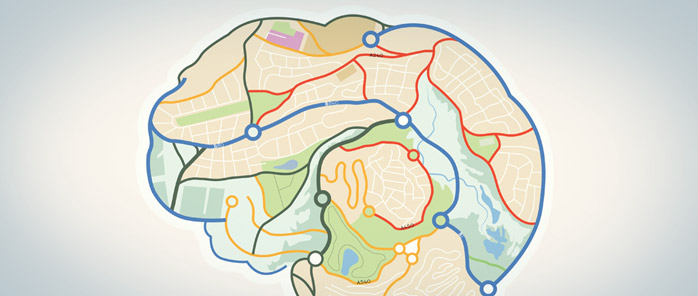When you struggle to recall what you have learned for a test, the struggle itself reinforces what you know.
The test anxiety you may feel while actively trying to recall what you have learned may cause you to be less confident about how you would perform on a high-stakes exam — but what you may not realize is that this struggle actually helps you learn and remember.
The Struggle to Remember
Nate Kornell, a psychologist at Williams College, notes that you may feel like you don’t know the material that well, and this will be upsetting. You may say to yourself, This is hard and I’m having trouble coming up with this information. But when rereading texts and possibly even drawing diagrams, you say: Oh, this is easier. I read this already.
Indeed, other researchers have found the same thing. Robert Bjork, a psychologist at the University of California, Los Angeles, has shown that although learners want to see quick improvements in their recall of facts and their deep understanding of concepts, slowing down the learning process and feeling the effects of failing tests of active recall are important parts of long-term knowledge retention.
As I discussed in an earlier post, this phenomenon is called the testing effect.
Overcoming Test Anxiety
Research psychologists agree that tests (especially closed-book tests) do lead to test anxiety and lack of self-confidence. This anxiety most of us feel when struggling to remember ideas, processes, and fact may dissuade us from using self-testing as a method of learning and retention — it may already have done so.
However, test anxiety and discomfort may be unfounded: it could be that studying has inflated your ego, but has not actually prepared you for the exam, or in fact, real-life clinical situations — though of course that’s a whole different problem altogether.
Roediger and Karpicke found that, “Relative to testing, repeated studying inflated students’ confidence…even though repeated-study subjects actually showed much poorer retention on delayed tests.” The study concludes:
Repeated studying is a strategy that students frequently report using and is often recommended to students by teachers (see Rawson & Kintsch, 2005, for discussion). Students may prefer repeated studying because it produces short-term benefits, and students often use ineffective learning strategies because they base their predictions of future performance on what produces rapid short-term gains. Although students in the repeated-study condition predicted they would perform very well a week later (relative to those in the other conditions), they actually performed the worst.
Improving Your Confidence with NEJM Knowledge+
Users of NEJM Knowledge+ have reported that their confidence improves as they answer questions and receive feedback on their answers in real time. As Philip Schweitzer, MD, says in his blog post about his preparations for his board exam, “As I was going through the subspecialty modules in NEJM Knowledge+, I found there were gaps in my knowledge – things I knew less well than I thought I did. I needed to find out what these missing areas were and master them before the internal medicine exam.”
This is not an isolated example but actually a well-known effect of both testing as a tool for better recall and in-depth learning as well as spending a little bit of time reflecting on your learning. In a recent paper, researchers Giada Di Stefano and her colleagues showed that learning coupled with reflection (as opposed to learning alone) leads to better performance and increased self-efficacy.
What’s your experience with test anxiety? Have you been able to turn it to your advantage?



I once was a star mathematics student. On a Christmas exam I had a brain fart. I froze. The prof understood. She said, “Take it home.” I did, had a beer and “aced” it. Panic is terrible!
I am a third year PharmD student and for a while now, I have been noticing that my test performance has been going down the hill because of anxiety. Although, if I have an oral discussion about the topic that is mandatory for the exam I can discuss it with the opposing person perfectly. Which got me to the conclusion that I have less anxiety to speak about what I have learned than sit for hours to answer on a paper. I don’t know, what do you think?